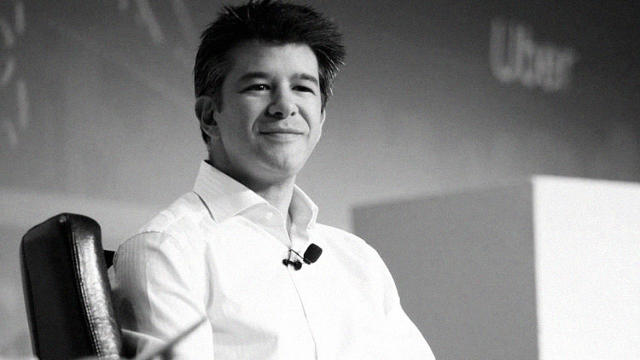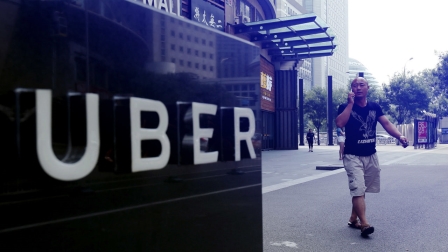What Uber China’s Merger With Didi Means For The Company’s Future
On Monday, Uber China and its biggest rival in the country, ride-hailing service Didi Chuxing agreed to merge, ending a fierce competition between the two companies that was costing them billions of dollars. While Uber has a stranglehold on the market in many other countries, in China it was losing money, reportedly to the tune of $2 billion over the past two years.
With the Didi deal Uber is reportedly seeing an influx of cash from the company. Bloomberg reports that Didi will invest $1 billion in Uber’s global economy, and Uber walks away with a 17.7% stake in Didi, putting it in a better place for expansion in other countries.
Poised For Expansion
Uber has been fighting hard in China, but now it can instead focus its energy on other developing markets, something CEO Travis Kalanick noted in an email he sent to Uber’s staff in China about the merger.
“As an entrepreneur, I’ve learned that being successful is about listening to your head as much as following your heart,” says Kalanick. “Sustainably serving China’s cities, and the riders and drivers who live in them, is only possible with profitability. This merger paves the way for our team and Didi’s to partner on an enormous mission, and it frees up a substantial resources for bold initiatives focused on the future of cities—from self-driving technology to the future of food and logistics.”

Thanks to that fight and the market share it was able to gain, Uber managed to get a decent-size chunk of Didi as part of the deal. So as Didi continues to grow and expand, Uber will be financially stronger as well.
Stronger At Home
The move also may have a positive impact on Uber’s fight in the U.S. with Lyft. Due to its intense rivalry in China, Didi had formed a number of alliances with some of Uber’s other competitors. In the United States, that came in the form of a $100 million investment in Lyft, and a partnership with the company that allowed customers to use Didi in the U.S. to hail a Lyft and vice versa for Lyft users traveling in China. Didi’s merger with Uber means that Uber is indirectly now an investor in Lyft. Just let that sink in for a minute.
A Lyft spokesperson told CNBC Monday that it will be evaluating its partnership with Didi over the next few weeks. Given that Uber now owns a sizable portion of the company, it might not make sense for the arrangement to continue. That’s potentially bad news for Lyft. If the partnership is discontinued, it also leaves the door open to Uber to pick up where Lyft left off and offer rides in the U.S. for Didi customers as well.
Didi also has partnerships with Ola in India and GrabTaxi is Southeast Asia.
Unlikely Bedfellows
Interesting to note, the deal brings together a number of companies that otherwise would not have chosen to work together.
Didi in its current form was originally the result of a merger between two other taxi apps, Didi Dache and Kuaidi Dache in February of last year. Kuaidi Dache was backed by Alibaba and SoftBank, while Didi Dache was backed by Tencent. In May, Apple invested $1 billion in the combined service, Didi Chuxing.
Baidu, Microsoft, and Google were already investors in Uber in the United States, most recently Baidu, which invested $1.2 billion in the company in 2015. Uber is also Google Ventures’ largest investment to date. It invested $258 million in the company in 2013.
That means that Alibaba, SoftBank, Baidu, Tencent, Apple, Google, and Microsoft all have investments in the combined entity. That’s a lot of big names, several of which might not be too thrilled to work together.
An IPO Is More Likely Now…Or Not
Uber’s consistent losses in China may have been a roadblock in its quest for an IPO. Didi had a whopping 85% of the market share in the country, making the battle an exceptionally difficult and expensive one.
An IPO where Uber is fighting a losing battle could make investors nervous, and many speculate that early investors in the company pushed for the deal in order to stop wasting money on a fight that they were losing and would likely continue to lose.
Now that its fight in China is over, Uber has the opportunity to focus on becoming bigger and better, and maybe even go public. Then again, it also might make sense to stay private for a little longer, to keep raising billions of dollars without the pesky input of fickle shareholders. In either case, the deal will likely rev up its profits.
Fast Company , Read Full Story
(26)













